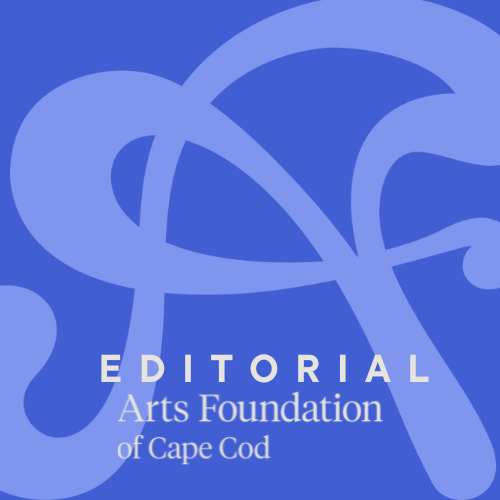Irony takes many shapes, but on May 2nd — the same day our outgoing grant applications closed — it arrived in the form of cruelty. It was delivered through an email from the National Endowment for the Arts (NEA), letting us know they were rescinding our $40,000 grant that had been awarded to us in November 2024 and was publicly announced this past January.
For nearly six months, the staff at our small regional arts organization had been planning, publicizing, and preparing our current round of grants with the intent of leveraging federal funding (which we were matching) to make an impact locally.
As a grant-making organization for 36 of our 38 years of existence, we take our investment in the arts seriously. And we have taken pride in being faithful stewards of taxpayer dollars since 2021, when we received our first NEA grant.
Sixty years ago, President Lyndon B. Johnson spoke about the important role our country can play in supporting the arts when the NEA was initially proposed: “But government can seek to create conditions under which the arts can flourish; through recognition of achievements, through helping those who seek to enlarge creative understanding, through increasing the access of our people to the works of our artists, and through recognizing the arts as part of the pursuit of American greatness. That is the goal of this legislation. In so doing we follow the example of many other nations where government sympathy and support have helped to shape great and influential artistic traditions.”
Cape Cod is known for many things — its beaches, natural beauty, and as a summer escape from the doldrums of winter.
But it’s much more than that. Henry David Thoreau, Edward Hopper, Eugene O’Neill, Norman Mailer, Tennessee Williams, and Marcel Breuer are among the creative heavyweights who called Cape Cod home. Today, artists like Sebastian Junger, John Waters, Kate Pierson, and G. Love represent the new guard.
Kurt Vonnegut, who lived here for nearly two decades and penned many of his most famous novels, including Slaughterhouse-Five, on the Cape, once offered this advice in a letter to students at Xavier High School in New York City, less than six months before his death: “Practice any art, music, singing, dancing, acting, drawing, painting, sculpting, poetry, fiction, essays, reportage, no matter how well or badly, not to get money and fame, but to experience becoming, to find out what’s inside you, to make your soul grow.”
Last September, our staff watched as nearly 10 adults banged on drums for over an hour at the Kennedy-Donovan Center in Yarmouth. They played simple songs — “I’ve Been Working on the Railroad” and“Row, Row Your Boat.” They will never perform in bars, theatres, or stadiums, and never be confused with professional musicians. All are living with developmental disabilities; one is blind and several have autism. But if you were a fly on the wall, you would have seen the souls of each of these individuals grow in the smiles and laughter that filled the room that night. Led by musician Sam Holmstock, this therapeutic drumming class was supported last year with federal dollars through the NEA.
What do a Czech entrepreneur, a Moroccan barista, and a Jamaican fashion designer have in common? All are contributing in meaningful ways to Cape Cod’s cultural landscape. And they are part of photographer Julia Cumes’ NEA-funded project that looks at how immigrants are shaping our region for the better.
Filmmaker Manx Taiki Magyar has a unique perspective of what it was like to grow up on the Cape where only 1.5% of the current population is like him – Asian. With a grant from the Arts Foundation and NEA, he turned that perspective into a 40-minute documentary that explores what it means to not only be Asian on Cape Cod, but in America.
Projects like these shine a bright light on who we are as individuals and a community. It allows us as a region to “experience becoming, to find out what’s inside you.”
When a nation fails to support the arts and its artists, one wonders what it says about the country we want to be – and the country we are becoming.
Julie Wake
Since 2015, Julie Wake has served as Executive Director of the Arts Foundation of Cape Cod, a 38-year-old nonprofit that serves as the central investment point for all of the arts across the region. She currently sits on the Governing Council for the Massachusetts Cultural Council and was appointed last fall to Governor Maura Healey’s Cultural Economy Advisory Council.
This Op-Ed was first published in the Cape Cod Chronicle and Cape Cod Times in June 2025.

